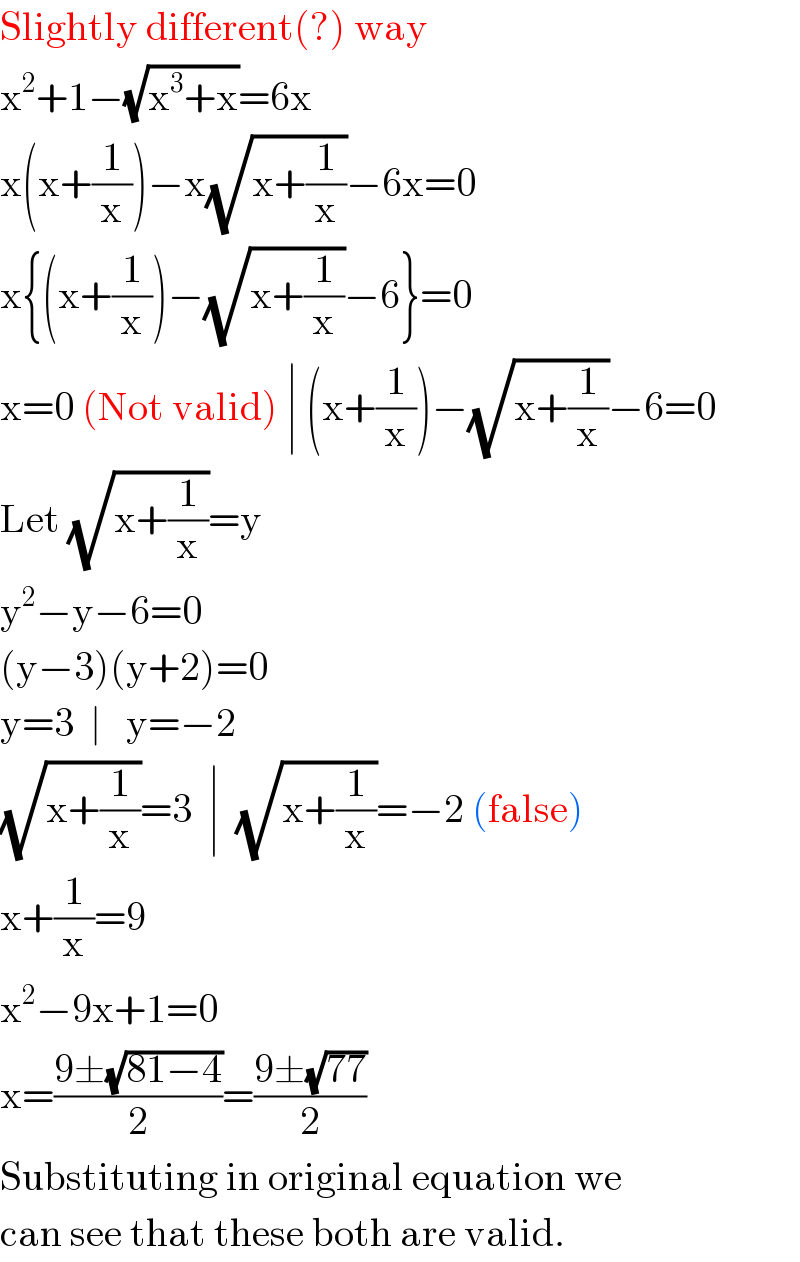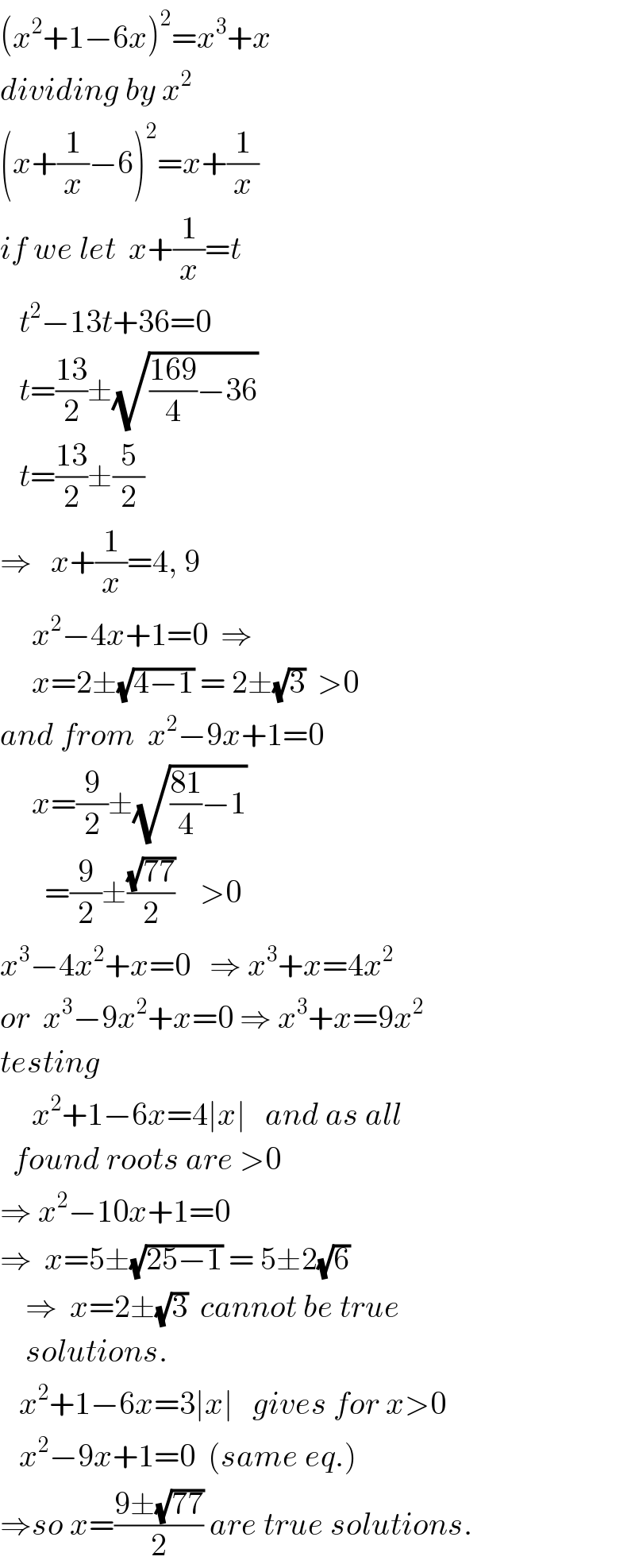
Question and Answers Forum
Question Number 68835 by MJS last updated on 16/Sep/19

Commented by Prithwish sen last updated on 16/Sep/19

Commented by MJS last updated on 16/Sep/19

Commented by Prithwish sen last updated on 16/Sep/19

Commented by Rasheed.Sindhi last updated on 16/Sep/19

Answered by ajfour last updated on 16/Sep/19

Commented by MJS last updated on 16/Sep/19

